Covid19 Pandemic: We Haven’t Even Begun To Talk About It
WE THE HYPOCRITICAL: For almost a year and a half, we have been talking about little else but the pandemic. Senior journalist and television anchor SP Singh, well known to the Punjabi readers for his weekly column, Likhtum BaDaleel, in Punjabi Tribune, claims that we haven’t been talking about the pandemic at all. In his recent piece, he has summed up our response to the virus. We bring you the English translation/rewrite of his column that appeared in the Punjabi Tribune. The original Punjabi iteration of this piece can be accessed here.
![WE THE HYPOCRITICAL: For almost a year and a half, we have been talking about little else but the pandemic. Senior journalist and television anchor SP Singh, well known to the Punjabi readers for his weekly column, Likhtum BaDaleel, in Punjabi Tribune, claims that we haven’t been talking about the pandemic at all. In his recent piece, he has summed up our response to the virus. We bring you the English translation/rewrite of his column that appeared in the Punjabi […]](https://www.theworldsikhnews.com/wp-content/uploads/2021/06/Face-mask-360x266.jpg)
FOR ALMOST A YEAR AND A HALF, we have been talking about a pandemic that has turned our world upside down. It stopped traffic, grounded our aircraft, froze our ships midstream, shut down businesses, closed our offices and barred us from seeing our friends, often disallowing us from even bidding a final farewell to our loved ones as they were buried, in some case by strangers.
We did nothing else during all this time except talk about the pandemic as we learnt to live with lockdowns, precautions and restrictions, and adopted new ways to try and live richer lives in the confines of our homes.
And yet, did we even start talking about the pandemic?
It may seem at the first go that we have been talking about little else but pandemic, but pause and give it a closer look: Did we even talk about pandemic at all?
Do we even care? Are we even afraid? Did we want anything to be done? Did the death of millions worldwide and tens of thousands in India make us think even a wee bit about why we reached where we find ourselves? Do we have any plans to do things differently?

There is solid evidence now that we did nothing of the kind. Perhaps we masked our faces and sanitized our hands, and possibly, remained 1.8288 metres away from fellow human beings but were we serious about the novel coronavirus?
Let us look at some spheres of activity around us that involve the key question of whether we are seriously bothered about the virus.
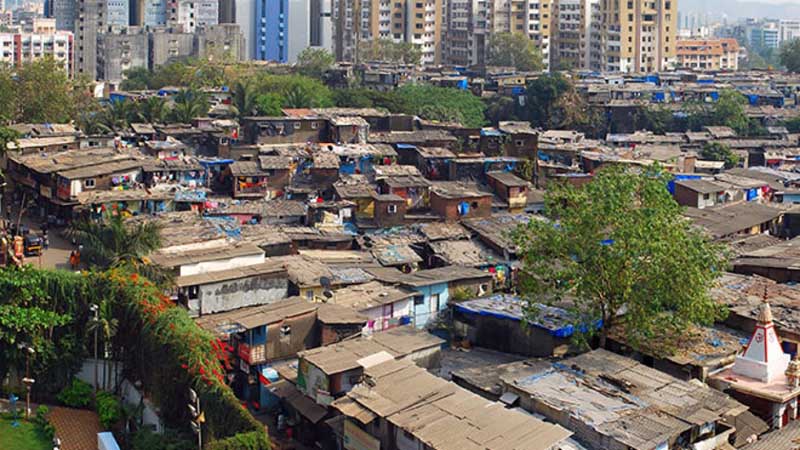
We all know by now that the virus spreads through close human to human contact. We also know how a large section of our populace lives — in slums, cheek to jowl tenements, hutments, or poorly-ventilated high-density mohallas, where human beings, cattle and garbage often cross boundary lines and bump into each other.
If we were any serious about the pandemic, then we would have been witnessing a raging debate in this country about housing policies, density caps, ventilation norms, re-designing of government-built houses, and every related aspect. Our ruling and opposition politicians would have been fielding their respective teams of urban planning architects and we would have been debating the role of open, public common spaces in ensuring public health.
Virginia Woolf told our girls that they each need a room of their own. We need our intellectuals and politicians to pay attention and start a debate about how an entire family at least needs one room. Where did you see such a debate?
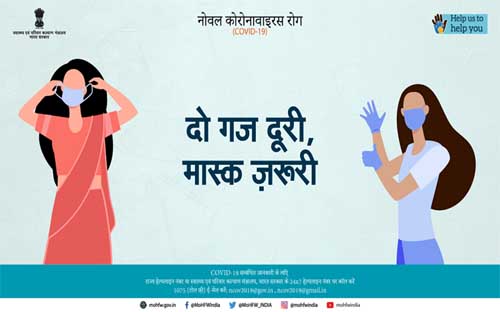
Where did you see the great policy formulation debate about access to basic necessities like drinking water and toilets in the context of a pandemic? After all, it isn’t really very practical if you maintain a ‘do gaz ki doori’ — 1.8288 metres social distancing rule — while jostling in a long line of human beings and jerry cans to fill water from a rather elusive water tanker?
Did you see a single politician talking about improving the Public Distribution System (PDS) to ensure delivery of food grains, ration and other essential supplies, for how else will you ensure that tomorrow, people do not die because of lack of such stuff in a virus-prompted lockdown?
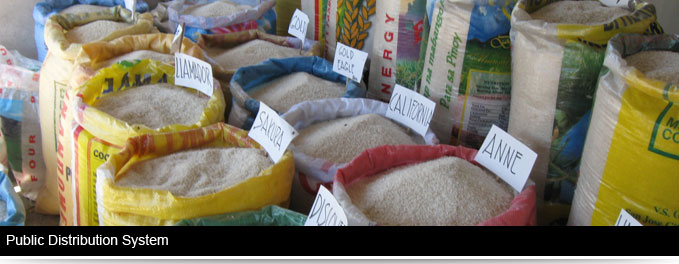
The West is wondering why it failed to plan better for “face masks, mass testing, stay-home orders, politicized decision making or devastating racial disparities” and is still being hauled over coals for ignoring the science, catering to and spreading inaccurate information and betraying a tendency for indecisive action that led to catastrophic failure. But here in India, we made a mockery of masks and social distancing, gave out faulty primers, had a very poor testing record and almost no contact tracing strategies.
We still aren’t anywhere close to a resolve to put science and data above all else. And we still have no proof that a different government, say one led by the Congress, or a United Front, would have acted any differently.
If we were serious about saving the lives of citizens and making it easier to access healthcare services, we would have heard at least from the opposition to shore up the country’s health budget and re-imagine the entire structure of access to healthcare.
 Is there a political leader who made a statement that the idea of nationalisation of healthcare services is something worth exploring? Has there been a debate about how much a doctor costs and how much should doctors charge? Have we even started talking about treatment cost caps? We haven’t even seen a debate about Clinical Establishment Act, something we already have on the law books.
Is there a political leader who made a statement that the idea of nationalisation of healthcare services is something worth exploring? Has there been a debate about how much a doctor costs and how much should doctors charge? Have we even started talking about treatment cost caps? We haven’t even seen a debate about Clinical Establishment Act, something we already have on the law books.
The Hindu-Muslim debate was the most rational to happen in the wake of the pandemic. After all, the virus tested our abilities to work together and made no class, caste distinctions. It is impossible to fight a pandemic if we are divisive. So, the Covid-19 was the perfect occasion for us to have a debate about the futility of even thinking about fighting a completely secular virus in a communal society torn apart by hatred.
And that is where our teachers and educationists should have been the most active. Where did you see teachers’ unions discussing how to deal with the issue of hate in their pedagogy? Where is the debate about how history is being taught in our schools? Where is the push to include questions of larger public health into the curriculum?
The virus is coming up with mutants that are highly, highly transmissible, care little about borders. To fight it, you need collaboration, cooperation and synergy. Where is the debate about community building? And if there isn’t one happening, then consider yourself under threat: It’s proof that no one is bothered if you’ll be caught by the microbe next time around.
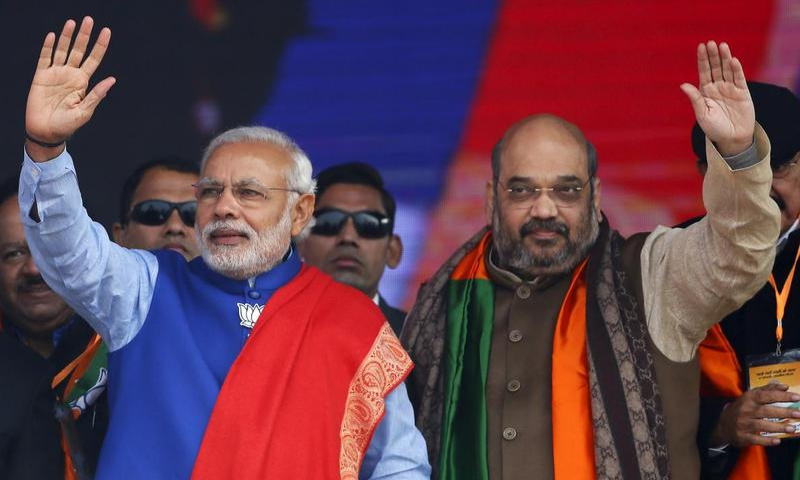
The only way the virus can be defeated is if we have a strong, coordinated science-based public response. It is only possible in a society that places a premium on the scientific orientation of mind. If you have a prime minister who talks about access to plastic surgery in ancient times, and ministers who bash the likes of Einstein and Newton all too frequently and question Darwin on a weekly basis, then have no doubt that the virus will have a field day whenever it chose to strike.
Self-styled alchemists and yoga gurus are quacks of the first order, and they are being backed by politicians who don’t give a tuppence about whether you are alive or dead, and we all have made our peace with the situation.
Self-styled alchemists and yoga gurus are quacks of the first order, and they are being backed by politicians who don’t give a tuppence about whether you are alive or dead, and we all have made our peace with the situation. The only thing that we now need to tell ourselves is the truth –No one, including us, is bothered about the virus.
If the United States is talking about underinvestment in public health and it is being seen as a massive vulnerability in mounting an effective response should a new virus arrive, where do we stand? Where is the debate about that? And we thought we were serious about the pandemic!
This is a secular, democratic virus. It can and will strike in secular, democratic ways. You can put up an air purifier in every room, but your driver comes from a slum. Outside in the street, the vendors hawking goods live in shanties. The fellow who comes to pick up your garbage shares the room with seven other poor fellows. The Zomato delivery kid lives in a basti you can’t stand the smell of. You can maintain your distance from all of them. But you still have to use the same roads that your driver, vendors, garbage picker, Zomato guy uses. And the virus will figure that out. It will get to you because you failed to get to them to do anything about their living standards. Are we talking about this?
Covid-19 or any other virus that is similarly, or more, contagious can wreak havoc because it is specifically related to the social determinants of health –conditions in the places where people live, learn, work and play. These circumstances predetermine health outcomes. Before you get to the burning question of oxygen and ventilators, you have to see the spaces and situation in which human beings live. You can’t summarise your understanding by clicking your tongue and saying, “Yeah, yeah, we understand, poverty, poverty, poverty!”

Whether we will be struck by the virus, and if we fall sick, whether we will survive or not, will depend on how we address these social determinants of health. Are we talking about this?
This is a secular, democratic virus. It can and will strike in secular, democratic ways. You can put up an air purifier in every room, but your driver comes from a slum. Outside in the street, the vendors hawking goods live in shanties. The fellow who comes to pick up your garbage shares the room with seven other poor fellows. The Zomato delivery kid lives in a basti you can’t stand the smell of. You can maintain your distance from all of them. But you still have to use the same roads that your driver, vendors, garbage picker, Zomato guy uses. And the virus will figure that out. It will get to you because you failed to get to them to do anything about their living standards. Are we talking about this?
We need an awakening to the people who keep society going forward, and whom we take largely for granted. But if you can discount the essential worker, then think how easily you can discount any other human life. Are we talking about how human we are? The virus knows that.
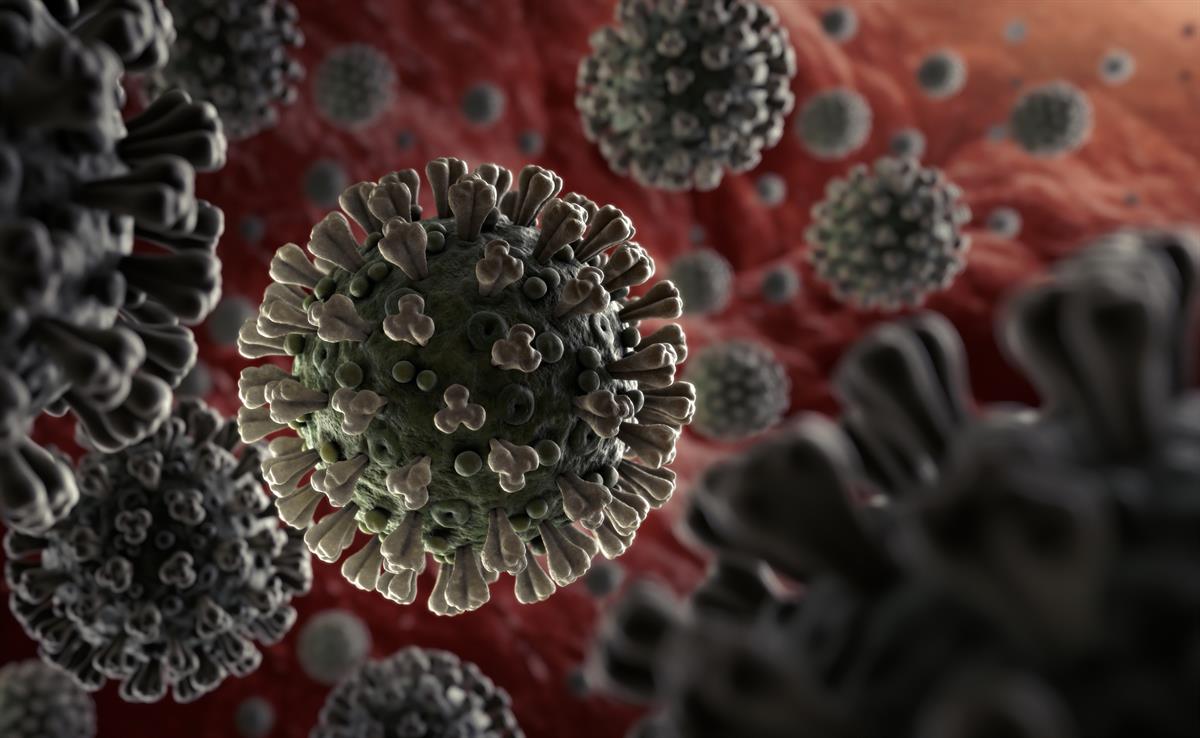
There is now enough research about virus and race. Covid-19 has really brought it to the forefront, in a very graphic way, how and why racial and ethnic minorities were getting so much more affected. Where are our studies and research papers and seminars on how the virus has affected Dalits, tribals, people of different ethnicities?
With governments ignoring how systemic discrimination is and how unequal the access to health care and jobs remain, it that essentially shapes the lives and experiences of the poor, resulting in profound and appalling health inequities that we’ve seen in this pandemic. We are not paying attention to policies around jobs, housing and education, and access to health care when a pandemic hits. So these inequities will essentially exponentially worsen, and the virus wouldn’t go away but will thrive. Your silence is keeping the virus around.
Where are our studies and research papers and seminars on how the virus has affected Dalits, tribals, people of different ethnicities?
 We need a robust public health system. Only then will we be able to quickly implement the type of surveillance, tracing, tracking and data collection that is critical in responding to a pandemic or any other emerging public health crisis. Are we talking about building such a system? If not, ask yourself, are we interested in the question of whether we live or die?
We need a robust public health system. Only then will we be able to quickly implement the type of surveillance, tracing, tracking and data collection that is critical in responding to a pandemic or any other emerging public health crisis. Are we talking about building such a system? If not, ask yourself, are we interested in the question of whether we live or die?
We have repeatedly seen the migrant workers travelling home every time a long lockdown was imposed. We also know that the virus travels with them. And we know it comes back with them. Still, we are not talking about any social security net for them; we are not resolving the issues of job security. And thus, we are creating channels for the virus to make periodic pilgrimages all over the country.
Where is the debate about converting the entire unorganised sector labour into organised sector labour? There is no other way out. The virus does not give you that option.
We have made our peace with a stupid kind of understanding — that our older people and those with underlying health conditions are, kind of, expendable. This has really crept into how we made decisions and promulgated policies. We gave up the fight by not providing enough testing, staffing and adequate personal protective equipment. That has conditioned us about policy-making for others, too.
The virus is already pretty lucky. The corpses in the Ganges were proof of its good luck. The pandemic has shown us who we really are. The level of clarity should be shocking to us. We could tolerate deaths at this scale for reasons completely avoidable, and yet, we remained calm.
 And the children suffered because of such a mindset. This virus was new to us, so we kept the kids secluded from other kids because that’s what we could quickly do. Then, we decided to stay that way because it was easier. We are having very little debate about how social isolation has been especially challenging for teens and potentially interferes in their maturation. We need to talk more about how we will handle this the next time around. Are we thinking in terms of changing the school architecture, redesigning classrooms, revisiting exams or evaluation strategies? And if we are, then are we only thinking of our kids or kids of the sweeper, driver, hawker, vendor, Zomato delivery guy, too? Caught? That’s how the virus will get to your kid.
And the children suffered because of such a mindset. This virus was new to us, so we kept the kids secluded from other kids because that’s what we could quickly do. Then, we decided to stay that way because it was easier. We are having very little debate about how social isolation has been especially challenging for teens and potentially interferes in their maturation. We need to talk more about how we will handle this the next time around. Are we thinking in terms of changing the school architecture, redesigning classrooms, revisiting exams or evaluation strategies? And if we are, then are we only thinking of our kids or kids of the sweeper, driver, hawker, vendor, Zomato delivery guy, too? Caught? That’s how the virus will get to your kid.
While we really do need to have a larger conversation about working together as a global community for future outbreaks, we are not having one even at the district level. We are failing to understand a simple thing: that how your district administration behaves can be a national security issue now. One stupid deputy commissioner can make the country vulnerable. And we know that we have half a dozen or a dozen of them in each of our states. Good luck to us.
You only need to tell yourself this: We Do Not Care If Other People Die. The virus already knows that. It wants you to stay that way.
The virus is already pretty lucky. The corpses in the Ganges were proof of its good luck. The pandemic has shown us who we really are. The level of clarity should be shocking to us. We could tolerate deaths at this scale for reasons completely avoidable, and yet, we remained calm. A little edgy perhaps during the news bulletin but then the ice cream arrived, or someone said, “Switch off the television. It is such dour news.” There is no national reckoning of the loss. The community is not doing it at its own level. And we are not doing it at the level of our families.
And we are not even talking about this.
So, let us do the minimal possible to make sure some level of seriousness remains: let us stop claiming that we care. We do not.
You only need to tell yourself this: We Do Not Care If Other People Die. The virus already knows that. It wants you to stay that way. My hunch is that you, too, do the same. We are so alike: we and the virus. There is not even 1.8288 metres between
us!
